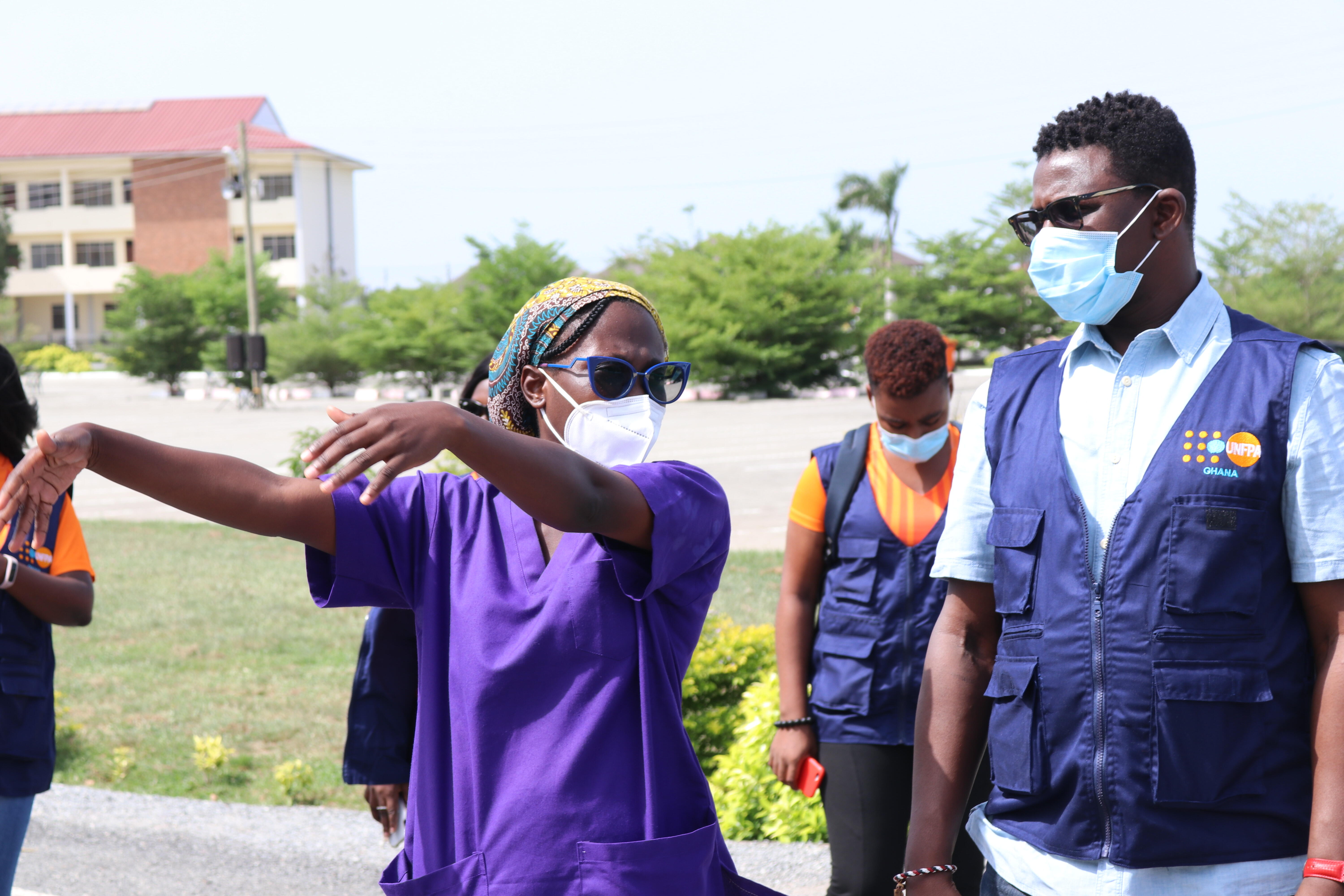In Ghana today, the COVID-19 outbreak has recorded over 4000 confirmed positive cases among the population, with an overwhelming 90 plus % of these cases in the capital city of Accra. The Government’s responses to the outbreak have included movement restrictions, ban on large public gatherings and enhanced contact tracing and testing. Of a truth, majority of the positive cases have been asymptomatic, and have been discovered from widespread testing. For some of these cases who have room for isolation at home, case management is being done through monitoring and support from health personnel. Many of these people however, do not have the facilities to isolate at home. Their cases are thus being managed in government-supported centres around the country, one of which is the facility located at the Pentecost Convention Centre (PCC) at Gomoa-Fetteh in the Central Region of Ghana.
UNFPA Ghana, as part of its mission to leave no one behind, especially in this fight against the coronavirus disease, donated dignity kits to the patients being housed at the PCC. The contents of the dignity kits include soap, sponge, toilet paper, towels, tooth brush and paste and sanitary pads, cleaning agents and some underwear to mention just a few. The items were handed over to the centre by the Mr. Niyi Ojuolape, UNFPA Resident Representative and Dr. Akosua Sika Ayisi, one of the resident health personnel, received the kits on behalf of the centre. She expressed appreciation for the items which she said will go a long way to ease the mental stress on patients, who have had to leave family and friends in order to keep them safe.
Mr. Ojuolape congratulated the health workers for their sacrificial work, while encouraging them to stay strong even in the midst of apparent challenges. He also took the opportunity to congratulate some out-going patients for their endurance while at the centre, and for contributing to keep the general public safe from the virus. Mr. Ojuolape expressed UNFPA Ghana’s commitment to support Government through the provision of more dignity kits for not just the patients, but PPE for the health workers to keep them safe while taking care of the patients.
With permission, the team from UNFPA was able to interact with some of the out-going patients who were discharged from the centre. One of them, who we will call Auntie Naa, a teacher, said that although the first few days were difficult, things got better as time went by. She said they were provided with food, health screening services and taken through daily exercise sessions to keep them fit. She commended the doctors, nurses and military personnel who were stationed with them for their kind support and care.
Another out-going patient who will call Mama Joe, a shop-owner, shared some advice with the general public. She cautioned everyone to take the situation seriously because the disease is real. She emphasized that precautionary measures like frequent handwashing and sanitizing, wearing of masks, social distancing and staying at home are important to eliminating the virus from our communities.


